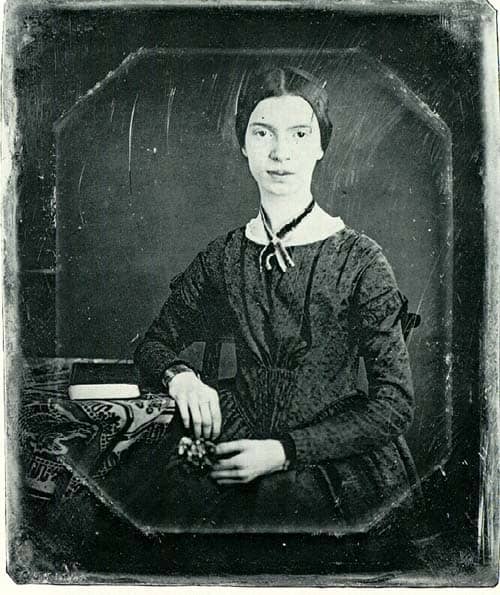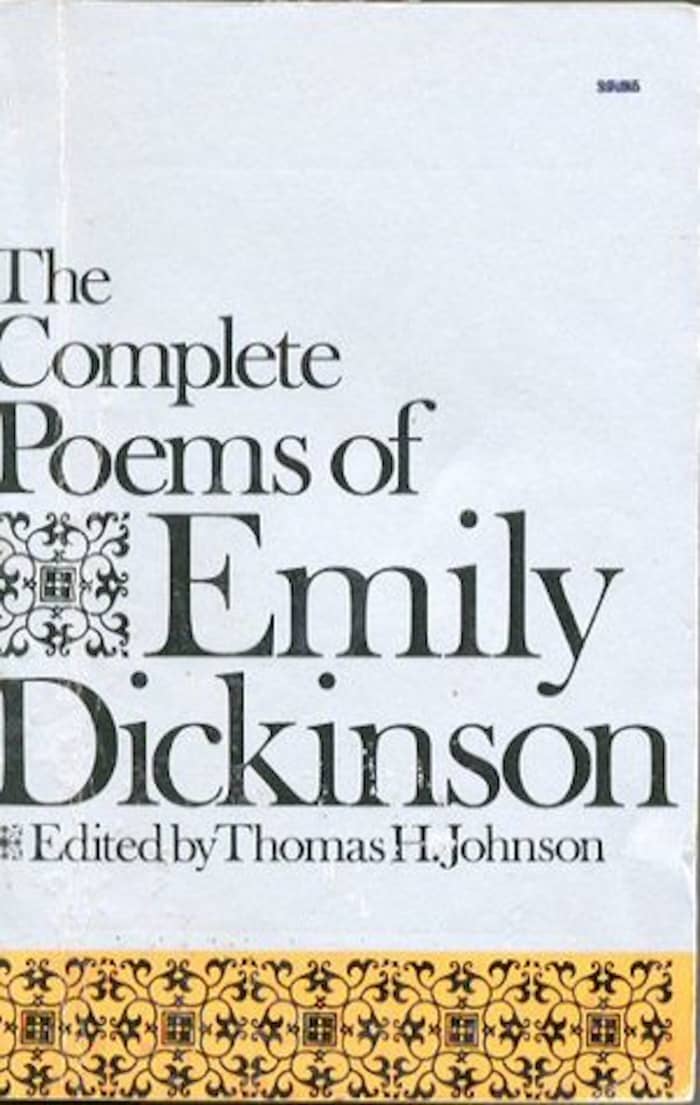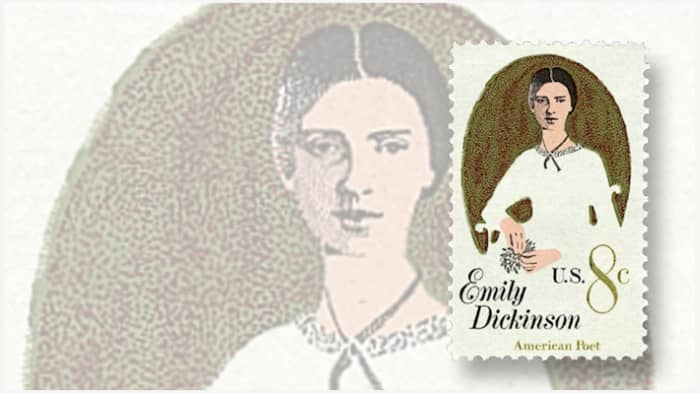Emily Dickinson Why Do I Love You Sir Peer Review
Emily Dickinson's poems inform my own worldview as a poet and scholar. They dramatize the human spirit via deep attending to life's details.

Emily Dickinson
Amherst College
Introduction and Text of "'Why do I love' You, Sir?"
Emily Dickinson'southward poem begins with the following oddly punctuated showtime line:
"Why exercise I love" You, Sir?
Dickinson'due south Editors
When analyzing Dickinson's poems, it is useful to remember that she did not piece of work with an editor for the purpose of publishing. Her poems were edited after her expiry by Thomas Wentworth Higginson and Mabel Loomis Todd, merely their reworking often smoothed out Dickinson's quirky use of language to the indicate of burdensome the innovation and nuances that fabricated her the unique poet she remains.
Therefore, Thomas H. Johnson restored her poems to the originals every bit found in the bundles of poem written in her own handwriting. Thus, the reader must be aware that Dickinson might have been persuaded to alter some of her quirks for publication, if she had been assured that her meaning would not be changed just instead made clearer by the changes.
The odd punctuation of this poem, especially the first line, is an example of a Dickinsonian quirk which, no doubt, would have been contradistinct by an editor after close consultation with the poet. Indeed, it would be fascinating to hear Dickinson's explanation for placing "Why do I love" in quotation marks, making it appear as a unit of thought that seems to address the second person "You."
Readers cannot know for certain what significance that odd punctuation might accept had for Dickinson; therefore, modern readers must simply omit the quotation marks every bit they brainstorm the poem.
The poem features four stanzas; the first two are innovative cinquains, the third is an innovative sestet, and the quaternary is a Dickinsonian quatrain. The poem dramatizes the theme of God'due south dear every bit mystery.
"Why do I love" You, Sir?
"Why do I love" You, Sir?
Considering —
The Wind does not require the Grass
To answer — Wherefore when He laissez passer
She cannot keep Her place.
Because He knows — and
Do not You —
And We know not —
Enough for U.s.a.
The Wisdom it be and so —
The Lightning — never asked an Eye
Wherefore it close — when He was by —
Because He knows it cannot speak —
And reasons non contained —
— Of Talk —
There be — preferred by Daintier Folk —
The Sunrise — Sire — compelleth Me —
Because He'due south Sunrise — and I encounter —
Therefore — And then —
I love Thee —
The speaker of Dickinson'southward oddly punctuated poem uses logic to demonstrate the reasoning that leads the created soul to love for its Creator.
Offset Stanza: Unavoidable Dear
Scroll to Go on
Read More From Owlcation
"Why do I love" You, Sir?
Considering —
The Wind does not require the Grass
To answer — Wherefore when He pass
She cannot keep Her place.
The speaker seems to be talking to God, calling Him "Sir," and questioning Him every bit to why she loves Him. Then the speaker replies with her own respond, "Because— / The Wind does not require the Grass / To answer."
Still, in society to completely respond to this amazing mystery, the speaker finds information technology necessary to compare her feelings with phenomena of nature. She decides to compare her love to the act of love the grass possesses.
The grass simply cannot prevent itself from undergoing its waving movement after the air current has diddled through it. The speaker's love for her Creator God is only simply natural. There can be no questioning it. Of course, she will continue to question and answer. That's merely the way she rolls!
Second Stanza: The Wisdom of Love
Considering He knows — and
Do not Y'all —
And We know not —
Enough for Us
The Wisdom information technology be so —
In the second stanza , the speaker avers that God equally Begetter, and Christ, along with all she knows about anything, hold the "Wisdom" motivating the love in the soul of the created children for their Creator. Nothing more is necessary, because everything is enfolded in that love and wisdom.
Third Stanza: Why Remains Irrelevant
The Lightning — never asked an Eye
Wherefore it shut — when He was by —
Considering He knows it cannot speak —
And reasons not contained —
— Of Talk —
At that place be — preferred by Daintier Folk —
In the tertiary stanza, the speaker returns to describing phenomena of nature to explicate the "why": she reveals that that love eruption is akin to lightning striking the eye. The eye will stop to ask why as information technology closes from the onslaught of lite's brilliance.
Intimately coalescing occurrences do not motivate one to enquire why. They just are. Or it is then obvious that no one has always in history bothered to question it. The speaker is nevertheless all the same aware that homo minds crave reasons for things and events.
The homo mind wants to discuss and declaim about the ineffable, even though the ineffable will never be "contained— / —Of Talk." The mind may be likened to "Daintier Folk," who wish everything to be antiseptic in words, despite the fact that words often cannot perform that feat.
Fourth Stanza: The Logic of Loving One'due south Creator
The Sunrise — Sire — compelleth Me —
Because He'southward Sunrise — and I see —
Therefore — And then —
I love Thee —
The beloved of God, for this speaker, remains quite uncomplicated: as the sun rises, her optics perceive light. As the Creator creates, the speaker loves. To her listen, only the completely daft can question the logic of loving one's Creator.

The text I utilize for the commentaries
Paperback Swap

Commemorative Postage stamp
Linn's Postage stamp News
This content is authentic and true to the best of the author's knowledge and is not meant to substitute for formal and individualized advice from a qualified professional.
Questions & Answers
Question: Why does the poem accept such an odd championship?
Answer: Readers cannot know for certain what significance that odd punctuation might have had for Dickinson; therefore, modern readers must only omit the quotation marks as they begin the poem.
Question: What is the theme of Emily Dickinson'southward "'Why exercise I beloved' You, Sir?"?
Answer: The poem dramatizes the theme of God's honey as a mystery.
© 2016 Linda Sue Grimes
septimusbehonell87.blogspot.com
Source: https://owlcation.com/humanities/Emily-Dickinsons-Why-do-I-love-You-Sir